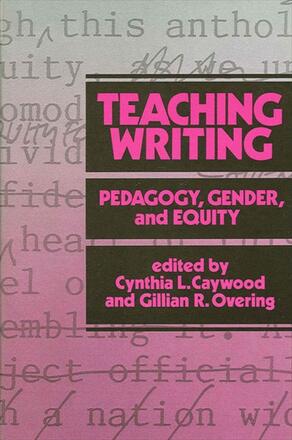
Teaching Writing
Pedagogy, Gender, and Equity
Alternative formats available from:
Description
This anthology explores the relationship between feminism and writing theory. The chapters cover the major issues: basic pedagogical theory and philosophical approaches to the teaching of writing, studies of problems encountered by female writers and writing instructors, and useful how-to essays on classroom technique. The authors also address important, provocative questions about power in the classroom—its use, abuse, and distribution.
The book is based on the concept of equity, which the editors define: "Equity does not mean to us the abolition of differences among individuals, nor does it imply a blanket imposition of an Orwellian homogeneity. It does not mean stifling some voices so that others may be heard; it does not demand the compromising of academic standards in the name of egalitarianism. Equity, as we understand it, creates new standards which accommodate and nurture differences. Equity fosters the individual voice in the classroom, investing students with confidence in their own authority. Equity unleashes the creative potential of heterogeneity. this definition of equity is at the heart of this anthology, and our attempts as teachers to model our pedagogy on this principle provided the impetus for assembling it." — from the Introduction
Cynthia L. Caywood is an Assistant Professor of English at the University of San Diego, where she directs the Writing Center. Gillian R. Overing is an Associate Professor of English at Wake Forest University.